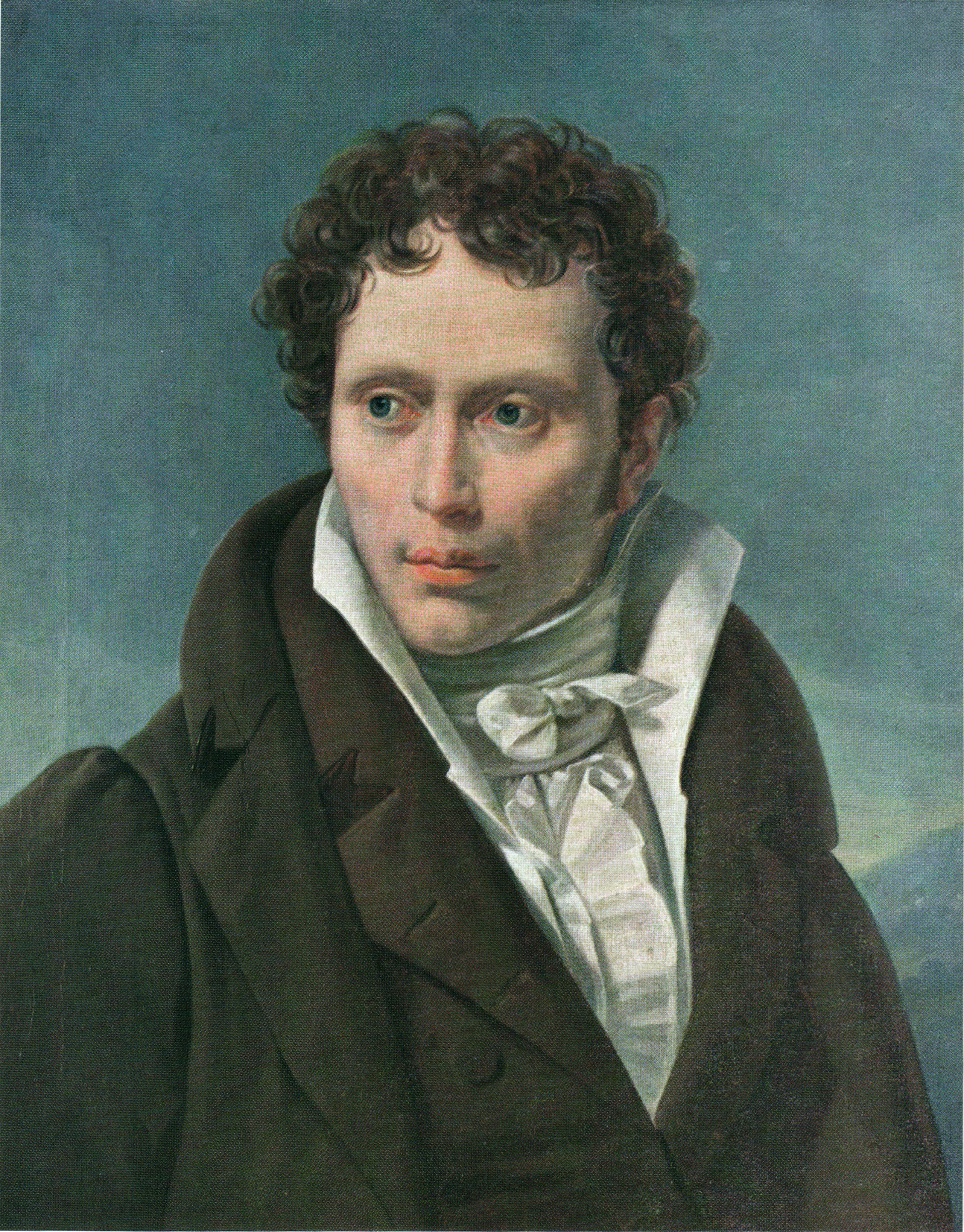It is also partly intended to show images, be they paintings, statues or photographs of the countenaces of men of yore. Because, quite frankly, many men wear the countenances of women these days: smiling, smirking, cooing, rolling their eyes, looking smug etc. It's a sign of the times, and by showing some images of men from the past, I hope to show some modern men why looking surly, frowning and giving hard-ball stares at people is something to do, something to practice.
 |
| Arthur Schopenhauer, 1815 (aged 27) |
Arthur Schopenhauer (22 February 1788 – 21 September 1860) was a German philosopher best known for his book, The World as Will and Representation, in which he claimed that our world is driven by a continually dissatisfied will, continually seeking satisfaction. Influenced by Eastern thought, he maintained that the "truth was recognized by the sages of India";[2] consequently, his solutions to suffering were similar to those of Vedantic and Buddhist thinkers; his faith in "transcendental ideality"[3] led him to accept atheism[4][5][6][7] and learn from Christian philosophy.[8][9][10]Source: http://en.wikipedia.org/wiki/Arthur_Schopenhauer
At age 25, he published his doctoral dissertation, On the Fourfold Root of the Principle of Sufficient Reason, which examined the four distinct aspects[11] of experience in the phenomenal world; consequently, he has been influential in the history of phenomenology. He has influenced a long list of thinkers, including Friedrich Nietzsche,[12] Richard Wagner, Ludwig Wittgenstein, Erwin Schrödinger, Albert Einstein,[13] Sigmund Freud, Otto Rank, Carl Jung, Joseph Campbell, Leo Tolstoy, Thomas Mann, and Jorge Luis Borges.
[..]
Schopenhauer had a notably strained relationship with his mother Johanna Schopenhauer. After his father's death, Arthur Schopenhauer endured two long years of drudgery as a merchant, in honor of his dead father. Afterward, his mother retired to Weimar, and Arthur Schopenhauer dedicated himself wholly to studies in the gymnasium of Gotha. After he left it in disgust after seeing one of the masters lampooned, he went to live with his mother. But by that time she had already opened her famous salon, and Arthur was not compatible with the vain, ceremonious ways of the salon. He was also disgusted by the ease with which Johanna Schopenhauer had forgotten his father's memory.
Check out some of the other entries from the 'Men of Yore' series:
Theodore Roosevelt
Rudolph Diesel
John Snow
Ludwig van Beethoven
Henry Ford
George Custer
[End.]
No comments:
Post a Comment